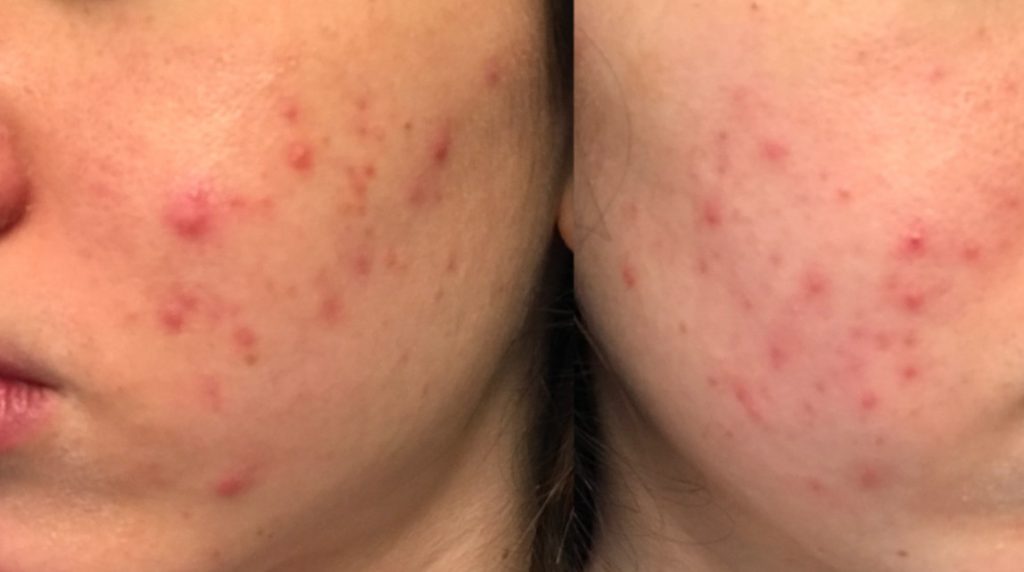vitamin a and acne
vitamin a and acne : Dead skin cells, bacteria, and fat are the main causes of acne. This environment is conducive to the growth of acne bacteria. A good, scientifically formulated anti-acne serum contains vitamin A to stimulate cell regeneration and proliferation. As a result, fat production is reduced and pores are cleared. Furthermore, this substance has anti-inflammatory effects on acne and helps to reduce pimples.
Experts believe vitamin A deficiency may cause acne. This vitamin affects the body’s largest organ, the skin, in different ways. As one of the main causes of acne, vitamin A inhibits excessive sebum production by the sebaceous glands. As well as protecting and repairing skin tissue, Vitamin A is also an antioxidant. Vitamin A also strengthens the immune system and helps eliminate acne-causing bacteria by protecting the body from free radicals. Vitamin A is therefore essential to get each day, which is 2310 international units for women and 300 units for men. Vitamin A is available in many natural sources, so you can take it five times a day. This will benefit other parts of the body and the skin as well.
vitamin a and acne : Acne can also be treated with topical ointments or vitamin A capsules. What is the recommended dose of vitamin A for acne treatment? Vitamin A can be used to treat acne with 300,000 to 500,000 international units a day. The daily intake of vitamin A should not exceed 10,000 units. In addition to liver damage, acute neurological disorders are possible physiological risks. As a result of vitamin A poisoning, the body stores a large amount of vitamins, causing headaches and nausea. Due to its fat-soluble nature, excessive amounts of vitamin A cannot be excreted in the urine. Having too much vitamin A in the body can cause a number of health problems. As a result, you should consult a doctor before taking such a treatment. If you see a doctor, he or she will recommend taking 300,000 units of vitamin A a day for two weeks, then reducing it to 100,000 units a day for two months. This amount can also be divided into several servings throughout the day.

Vitamin A is essential for the growth and health of cells. Vitamin A is essential for the proper functioning of all body cells.
Vitamin A has antioxidant properties that protect cells from free radical damage. Skin cells may age slower and look younger if this is done.
A similar process may also reduce the speed at which skin cells fall off, potentially reducing acne and pore clogging.
Accutane, a brand name for isotretinoin, can treat severe acne, according to a study published in the Journal of the American Academy of Dermatology.
Isotretinoin is one type of retinol. Additionally, it can be used to treat moderate acne that is resistant to other treatments.
To reduce the risk of liver problems, anyone taking retinoid medications should undergo regular liver tests. Because vitamin A binds to fat cells in the body, it can accumulate and become toxic.
Skin cells may also benefit from topical application of vitamin A. Topical retinoids can reduce inflammation.
These drugs may also make the skin more sensitive to UV rays. The risk of sunburn increases for people with this sensitivity when exposed to strong sunlight.
How does the research inform us?
Acne treatment with topical vitamin A has been supported by a lot of research. Despite this, oral vitamin A has been found to be ineffective for acne.
Earlier research by Trusted Source did not find oral vitamin A to be an effective acne treatment, but it might prevent acne vulgaris from getting worse.
According to Trusted Source, oral vitamin A is also effective at treating acne, but the study was small and of poor quality.
Vitamin A is most effective as a topical acne treatment.
Although vitamin A is important for your health, it isn’t the best treatment for acne. It is harmful to consume too much vitamin A.
Vitamin A is important for strengthening and protecting your skin, so it is important to consume a variety of foods rich in it.
Animal foods that contain retinoids include:
Beef or sheep liver
Salmon fish
Dairy products such as milk, butter and cheddar cheese
egg
Fish
Fish liver oil
Shrimp


